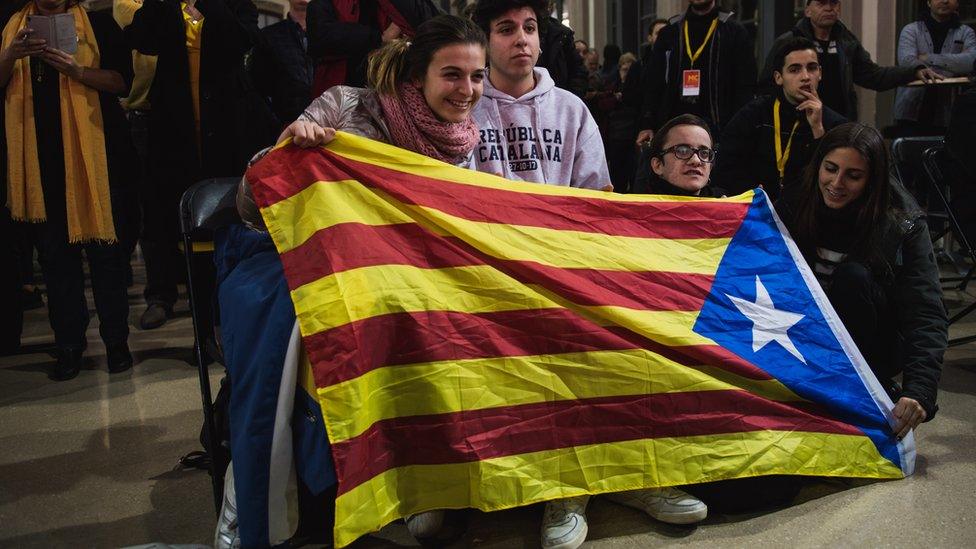Spanish elections: Socialists win amid far-right surge
- Published
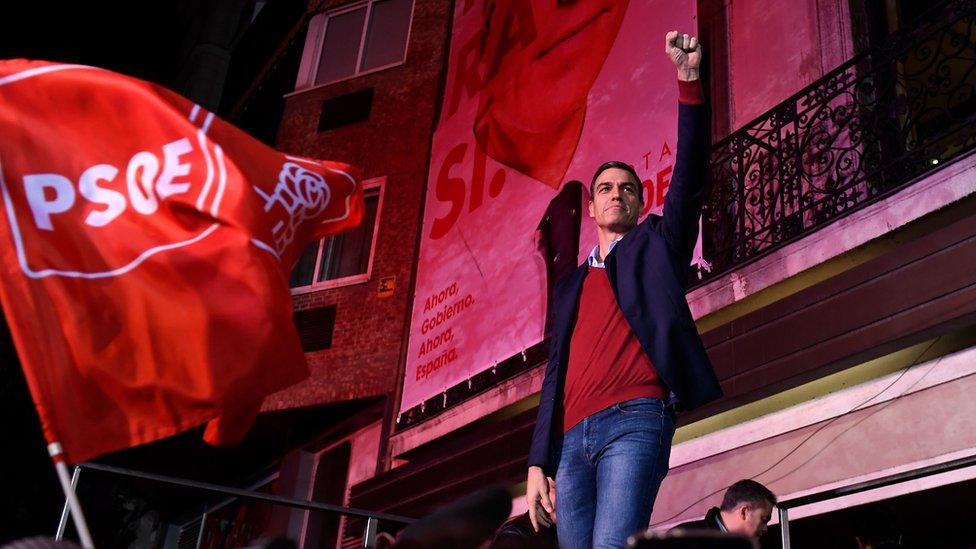
Socialist leader Pedro Sánchez hails victory, despite again failing to win a majority government
Spain's governing Socialists (PSOE) won the most seats in Sunday's election, but fell short of a majority - and right-wing parties made major gains.
The conservative Popular Party (PP) came in second, and far-right Vox more than doubled its seats to become the country's third most-powerful party.
This is Spain's fourth general election in as many years.
A previous vote in April ended with no clear majority, and the Socialists failed to form a coalition government.
This time, the Socialist party won 120 of the 350 seats - three fewer than in April's vote. The PP has 88 seats, up from 66 in the previous poll, while Vox has 52 - up from just 24 in April.
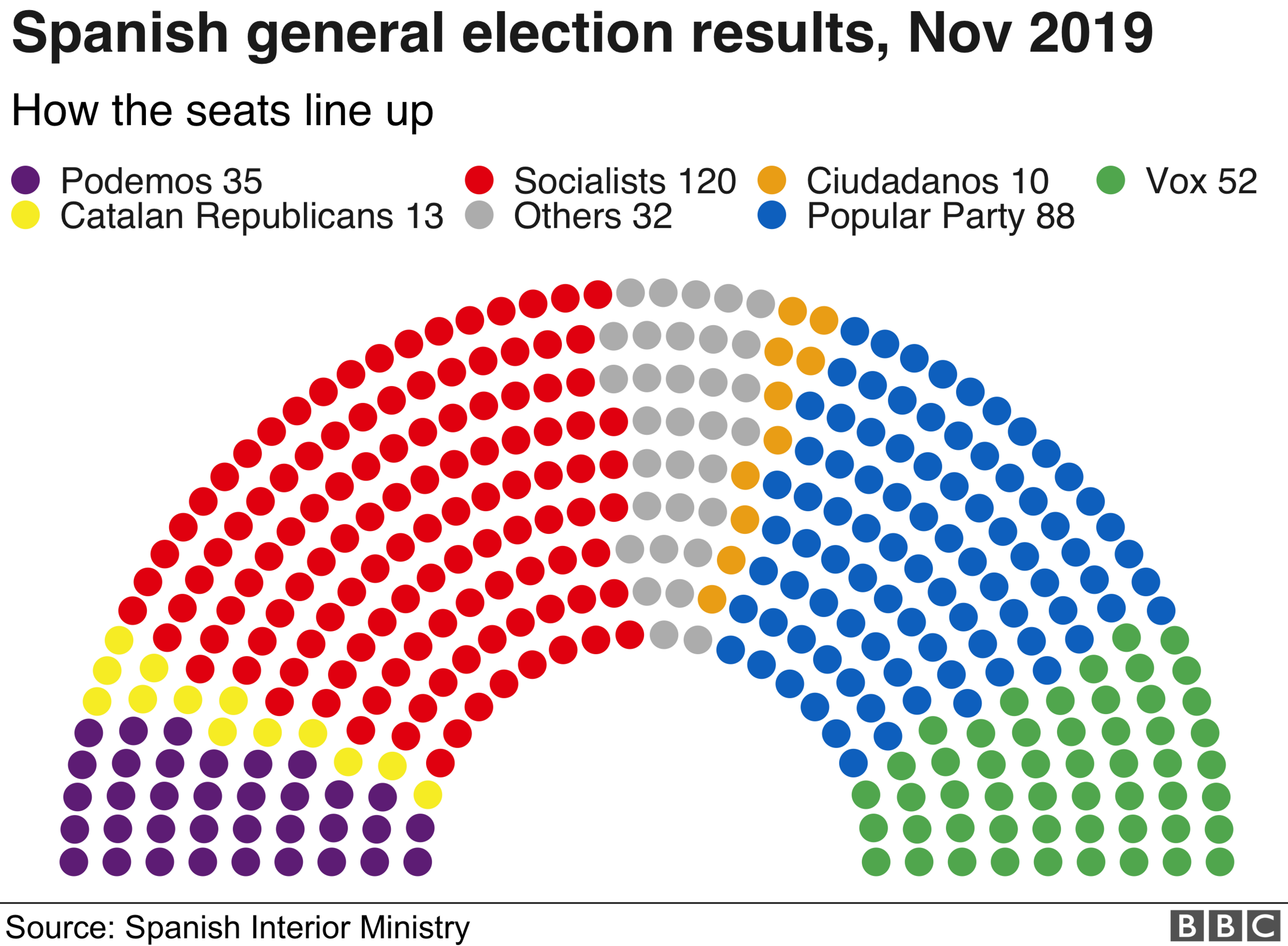

One of the main issues in Sunday's vote was the increasing tensions with Catalonia, Spain's semi-autonomous north-eastern region whose failed bid for independence in 2017 sparked the country's biggest political crisis for 40 years.
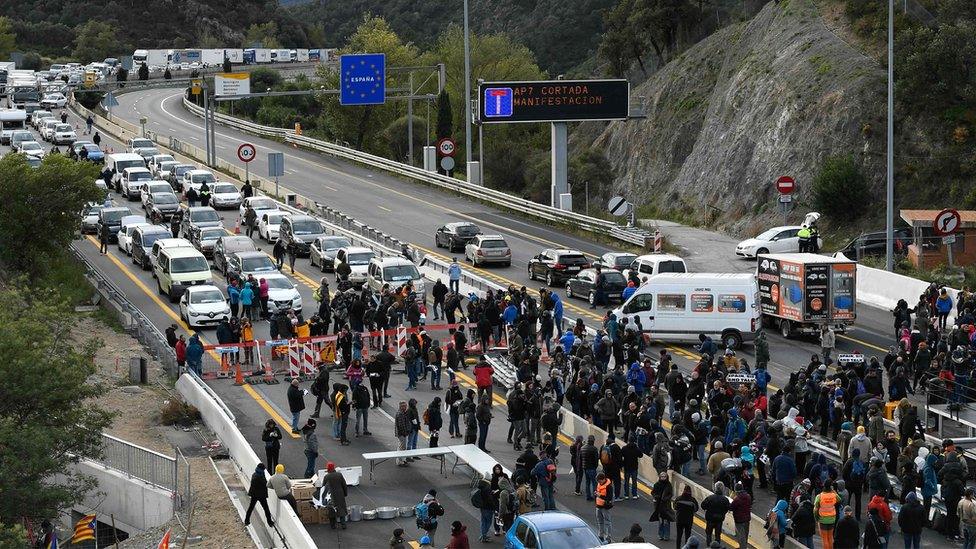
Protesters block the AP-7 motorway at the Spanish-French border in northern Spain
On Monday, hundreds of Catalan separatist demonstrators blocked traffic in both directions on the AP-7 motorway connecting Spain with France in a protest against the jailing of separatist leaders from Spain's Catalonia region last month.
What now?
Addressing Socialist supporters after the results came in, acting Prime Minister Pedro Sánchez said it was his priority to "form a stable government and do politics for the benefit of the majority of Spaniards".
"I would like to make a call to all the political parties because they need to act with generosity and responsibility in order to unblock the political situation in Spain," he added.
After failing to form a government, Mr Sánchez had hoped that calling another election would strengthen his party's hand - but Pablo Iglesias, leader of left-wing Podemos, warned that it had only reinforced the far right.
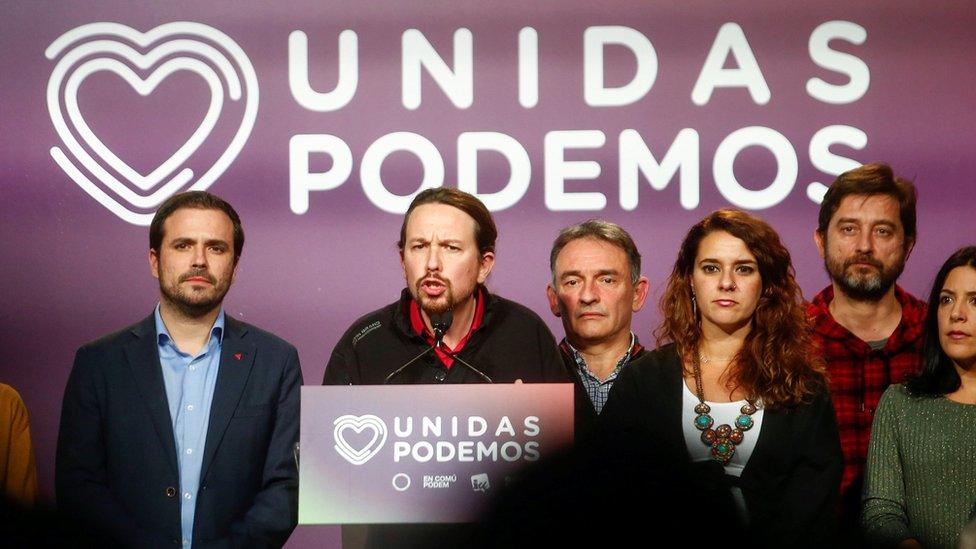
Pablo Iglesias warned that this election had only strengthened right wing and far-right parties
"Once again we extend a hand to the Socialist party and Pedro Sánchez," he said, adding that he was ready to start talks with the party as soon as Monday.
Podemos is the Socialist party's natural political ally. However, a coalition between the two would still fall short of the 176 seats needed for a majority.
Meanwhile the centre-right party Ciudadanos - or Citizens - haemorrhaged support, winning only 10 seats this month compared to 57 in April.
Ciudadanos was also overtaken by ERC-Sobiranistes, an electoral coalition of pro-Catalan separatist parties.
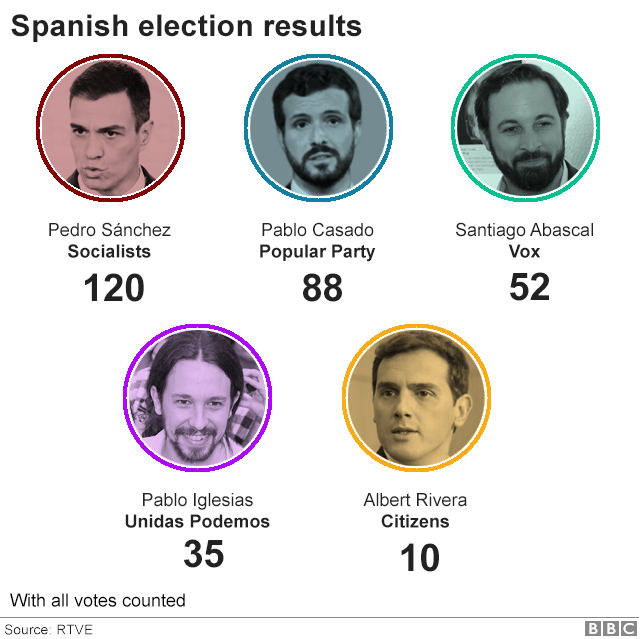

Albert Rivera, leader of Ciudadanos, said: "Spaniards have wanted more Sánchez for this legislature, but Spaniards have also wanted more Vox and less of the political centre."
Vox is thought to have benefited at the ballot box from the Catalan crisis, and strong anti-separatist sentiment in other regions of Spain.
"Today a patriotic alternative and a social alternative has been consolidated in Spain that demands national unity and the restoration of constitutional order in Catalonia," Vox leader Santiago Abascal told crowds after the election.

Not a good night for Socialists
Guy Hedgecoe, Madrid
Although Pedro Sánchez's Socialists have emerged as winners having suffered only slight losses in this election, the overall result is not a positive one for the acting prime minister.
With Podemos having lost some ground and Más País securing only a handful of seats, there is no clear left-wing majority. The Socialists' arch-rivals on the right, the PP, has recovered many of the seats it lost in April's ballot.
If the country's longstanding political stalemate is to be broken, Mr Sánchez might have to seek the support of the PP, or else a third election in the space of one year could beckon.
Meanwhile, the huge surge by Vox means it will now find it easier to set the agenda on the right. That is likely to hinder any attempts by Mr Sánchez to seek a conciliatory solution to the Catalan crisis.

The April election ended in deadlock, with parties failing to form a coalition by a September deadline, thus forcing Sunday's election.
To form a coalition now, they would need to form alliances with smaller, nationalist parties, analysts suggest.
Meanwhile, the PP and Vox could seek to make the most of their gains.
One PP politician said Prime Minister Sánchez should "start to think about going", given the early results.
What are they saying about the far right?
The huge surge in seats for Vox will be one of the biggest talking points of the night.
Who are Spain's far-right party?
Spain had appeared immune to a wave of far-right populism spreading across the continent in the past decade, with many remembering the military dictatorship of Gen Francisco Franco.
But now Vox has established itself as a major force in Spanish politics.
France's far-right party leader Marine Le Pen took to Twitter to congratulate Vox's "staggering progress".Italian populist Matteo Salvini also spoke of his pleasure at seeing Vox's success.
"Not at all racism and fascism, in Italy as in Spain we just want to live peacefully in our own home," he tweeted.
- Published11 November 2019
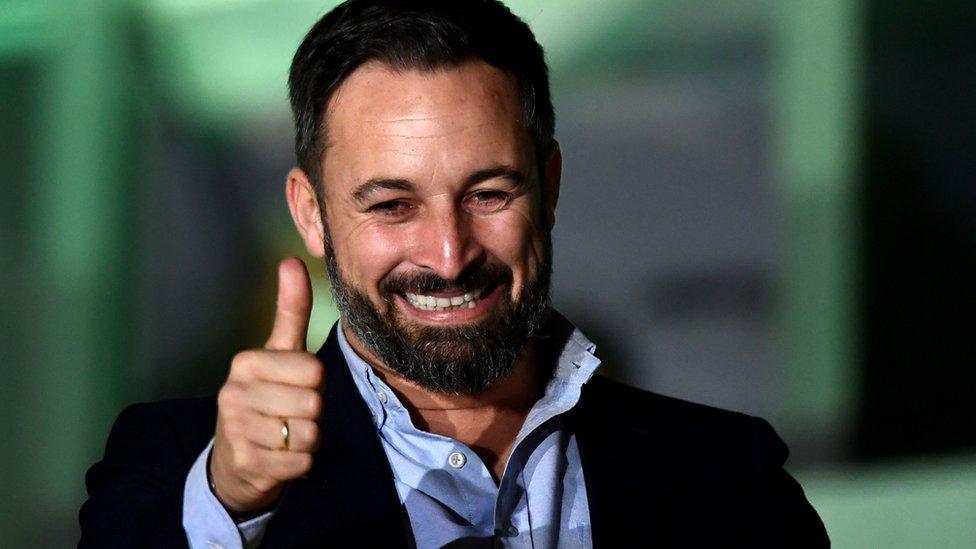
- Published14 October 2019
